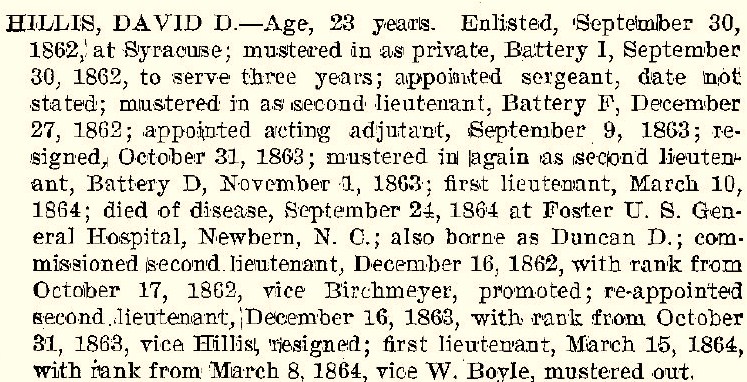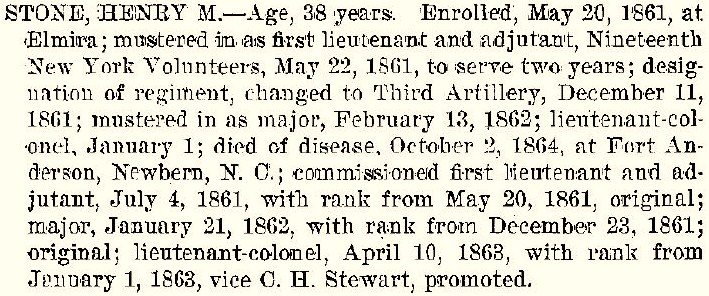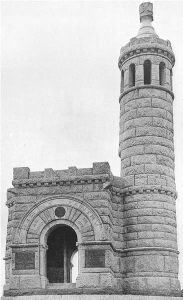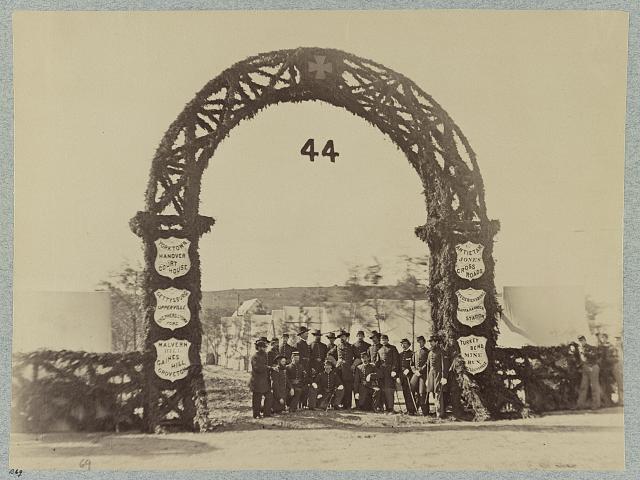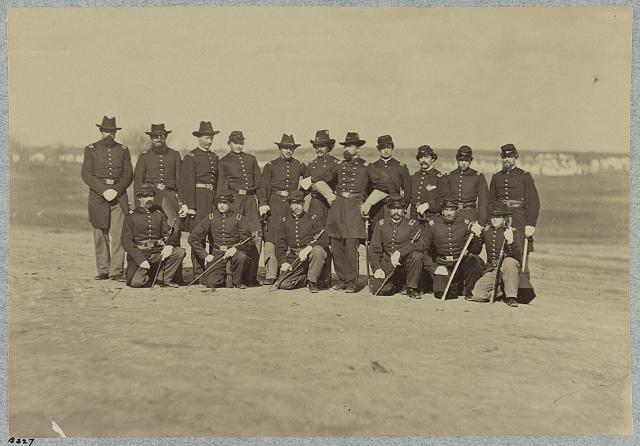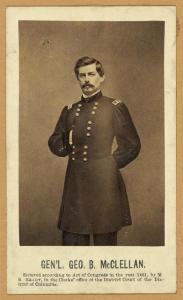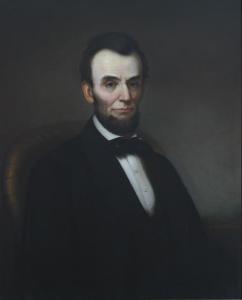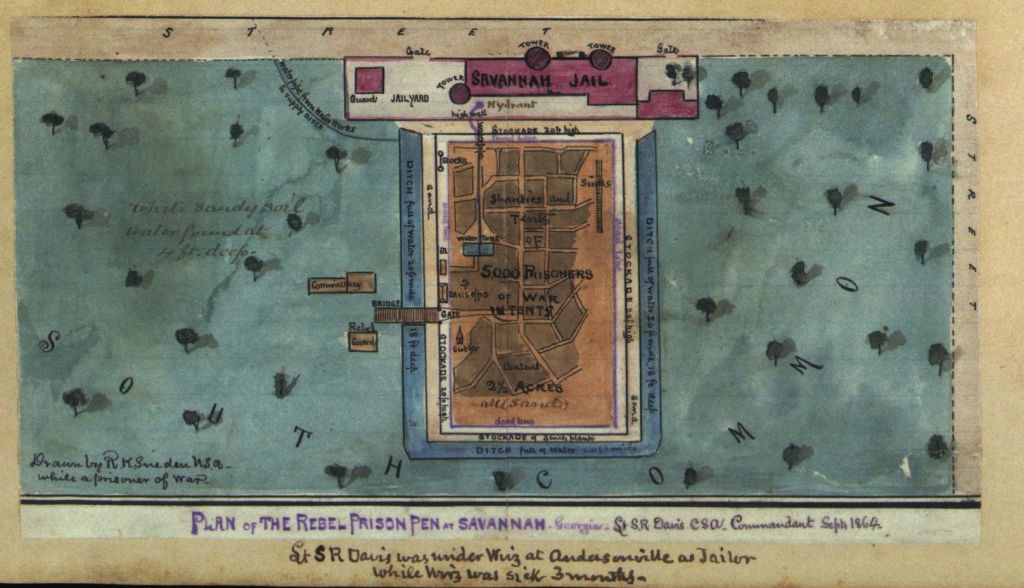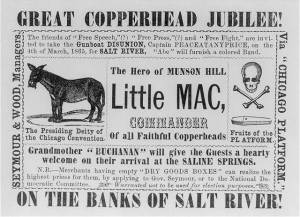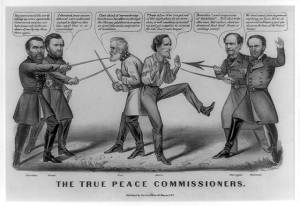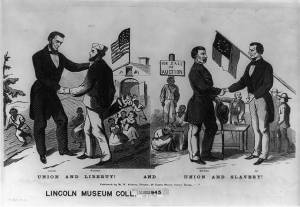Apparently both the Chairman of the Democratic National Committee and a Republican newspaper, The New-York Times, claimed victory in the October 10 or 11, 1864 Pennsylvania state election. And they both saw their victory as a victory for the Union.
From a Seneca County, New York newspaper in October 1864:
Victory.
A glorious victory has been achieved in the gallant State of Pennsylvania, over combinations of fraud, government patronage, and the most lavish expenditures of money. The cause of THE UNION AT ALL HAZARDS has triumphed.
The battle has been the South Mountain of the campaign, which will be followed in November by another Antietam for the Union and the Constitution.
The result assures the State for McClellan and Pendleton, and justifies our expectation of triumphant success in the national election in November.
It is recommended to the various Democratic and Union organizations in the city of New York to illuminate their respective headquarters, and to assemble thereat on Monday evening, the 17th inst., in honor of the auspicious result in the Keystone State; that national salutes by fired in the public squares; and that the city of New York, true to the cause of the Union and the Constitution, under the chosen leader MCCLELLAN, send congratulations to our brothers in Pennsylvania on their hard earned and triumphant success.
AUGUST BELMONT,
Chairman of Democratic National Committee.
By October 15th the Times was reporting that it was impossible to be certain how Pennsylvania had gone until official returns were announced. Also, “The recording of the soldiers’ votes is necessarily very slow, being distributed among various counties, and from the manner in which they appear on the tally papers, it is impossible to make an aggregate until the record is more complete.”
Another pro-Lincoln publication, Harper’s Weekly, in its October 22, 1864 issue (at Son of the South) alleged that a Democratic-foreign combination had lavished money and skullduggery in its attempt to win Pennsylvania:
PENNSYLVANIA.
WHEN the news of SHERIDAN’S victories in the Valley began to arrive, a month ago, a man standing in front of a newspaper bulletin, and reading the good tidings, looked very gloomy, and remarked to his melancholy neighbor, ” If this sort of thing goes on, ABE LINCOLN will be re-elected.” How did that gentleman look, we wonder, on Wednesday morning, when the news from Pennsylvania began to arrive? …
The contest in Pennsylvania was most earnest and intense, The Chicago-London party had deserted all other points to concentrate upon the keystone of the arch. If they could only start that from its fidelity they hoped that the whole fabric would crumble. If they could persuade Pennsylvania to speak doubtfully for the Union in October, they were confident they could induce the country to surrender to rebellion in November. Beaten there they foresaw defeat every where, Consequently, no effort has been spared. Money in profusion, and the most reckless and desperate political trickery have been lavished upon the State. They have strained every nerve to draw Pennsylvania from her support of the American Union and Government, and, by the blessing of God and her faithful people, the combined forces of Treason, foreign hate, and rebellious Slavery have signally and disastrously failed.
It is a State triumph, a national triumph, and a triumph of universal liberty and good government. …
It is written that Republicans ended up gaining three seats in Pennsylvania’s U.S. House of Representatives delegation.
You can read a bio of Mr. Belmont at Mr. Lincoln and New York. An immigrant from Germany, Mr. Belmont was associated with the Rothchilds and became an American financier and diplomat. He served as minister to the Netherlands for President Pierce. He supported Stephen A. Douglass in the 1860 presidential campaign.
150 years ago today Richmond could read a humorous Northern take on General McClellan. From the Richmond Daily Dispatch October 13, 1864:
… M’Clellan Squibs.
In a speech at Portland, Maine, recently, the Hon. John A. Peters “brought down the house” with the remark: “if McClellan couldn’t take Richmond, making Washington his base, you may safely swear he will never take Washington, making Richmond his base ! “
From the diaries of officers on board the shipgunboat G[a]lena, during the retreat from Richmond, it seems to be conclusively proven that General McClellan was part of the crew, instead of the army, during the battle of Malvern. To which, then, does General McClellan belong, the army or the navy? We presume that he is an amphibious general. …

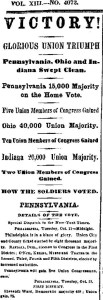
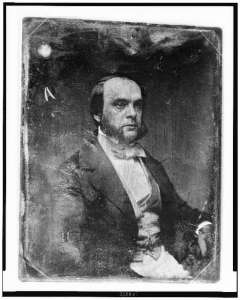
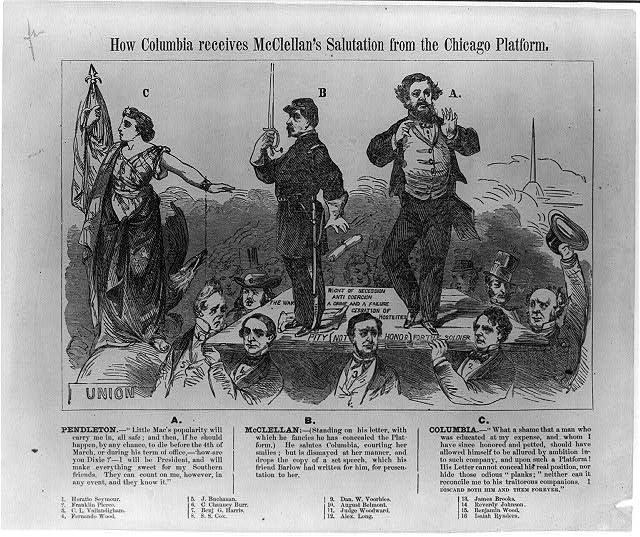
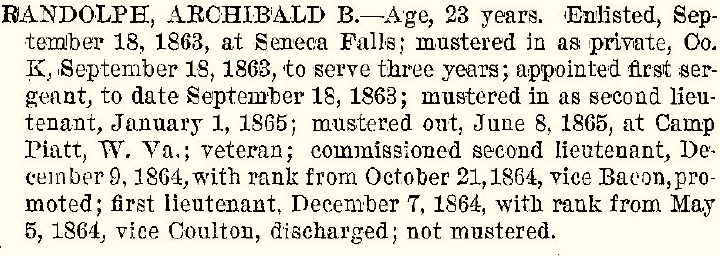
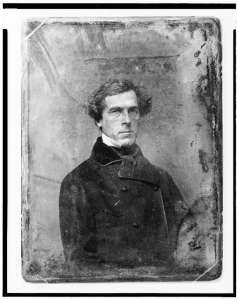
![Rochester Published by Charles Magnus, N.Y., [between 1850 and 1860]; LOC: LC-USZ62-89341)](https://www.bluegrayreview.com/wp-content/uploads/2014/10/3b35718r.jpg)
